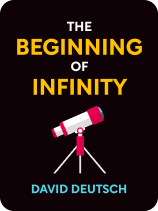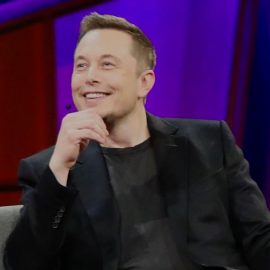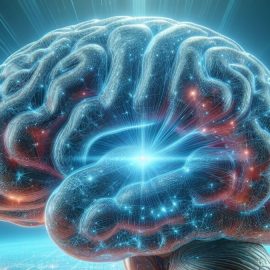

This article is an excerpt from the Shortform book guide to "The Beginning of Infinity" by David Deutsch. Shortform has the world's best summaries and analyses of books you should be reading.
Like this article? Sign up for a free trial here .
How does learning mimic evolution? How do ideas evolve?
Theoretical physicist David Deutsch rejects the idea that humanity will someday know everything there is to know. He also believes that like genes, ideas reproduce and are extremely hard to change.
Here’s why the evolution of ideas is very similar to genes, according to Deutsch’s book The Beginning of Infinity.
Learning Mimics Evolution
Interestingly, although people create knowledge intentionally while evolution happens naturally, Deutsch says that the evolution of ideas and the evolution of genes have several things in common:
- Successful ideas and successful genes both reproduce, by definition.
(Shortform note: In biology, a “successful” gene helps its host organism survive and reproduce, thereby passing itself on to the next generation. Deutsch is echoing that definition in his discussion of successful ideas—they’re ideas that survive and pass from person to person through conversation, media, and imitation.)
- Successful ideas and successful genes both emerge from fierce competition, while their unsuccessful competitors die off.
(Shortform note: Both organisms and ideas have to compete for limited resources—however, in the case of ideas, the resources are people’s time and attention. Just like animals die if they don’t get enough food, ideas die if nobody talks about them.)
- Good ideas and good evolutionary adaptations are both hard to change without ruining them (think back to trying to change the theory of gravity without making it worthless).
(Shortform note: For an example of how changing an evolutionary adaptation can prevent it from working properly, consider the genetic disease cystic fibrosis (CF). In CF, a mutation to a single gene makes it so the body can’t properly regulate flows of salt and fluids throughout your body. This leads to the buildup of thick, sticky mucus in the lungs, which (if not treated) eventually proves fatal. In other words, slightly changing a bodily process makes it not work correctly, thereby killing the person.)
- Knowledge and evolution both create “good enough” solutions. In other words, neither knowledge nor biology can ever be perfect—instead, we have adaptations and theories that function in the current environment, and that may not survive when the environment changes.
How Did Religion Evolve?
Evolutionary biologist Richard Dawkins first discussed the similarities between genes and the evolution of ideas in his book The Selfish Gene. That book is where the word “meme” originated, though the definition was quite different from the modern one: Dawkins defined a meme as a piece of information that spreads from one organism to another through imitation—for instance, some birds’ songs spread because nearby birds mimic the songs they hear.
As an example of a successful meme, Dawkins discusses the idea of gods. Belief in a higher power has existed in some form throughout almost all of human history, making it one of the most successful memes ever—though, admittedly, a lot of the time people imitated others’ beliefs under the threat of violence. As a biologist, Dawkins says that it’s tempting to talk about memes in evolutionary terms; to ask, “How does believing in God help one to survive and reproduce?” Perhaps simply because it’s comforting to think something more powerful than ourselves is in control of the universe.
However, Dawkins also says that belief in God might just be a side effect of how our brains developed: As we look for patterns and explanations in what we observe, “God did it” presents an easy and satisfying answer. Remember, as Deutsch says, neither genes nor memes create perfect solutions, only solutions that are good enough for the present circumstances.
Cultures Co-evolve With Memes
Deutsch adds that ideas also evolve because cultures consist of ideas that people share. In other words, cultures are built on successful memes (using the original meaning of “meme,” as Dawkins defined it). Deutsch identifies two different types of memes and the cultures that come from them:
Rational memes are beneficial, based in knowledge, and encourage people to continue building knowledge. For example, the theory of gravity is a rational meme: It’s based on our current best understanding of reality, and it replicates because we keep teaching new generations about gravity. Rational memes create dynamic cultures, which change and evolve as the memes within them do.
Anti-rational memes suppress thought and creativity. They replicate via blind devotion and intolerance for questions or doubts. Anti-rational memes lead to static cultures, which maintain stability by never allowing anything to change. For example, many orthodox religious sects are static cultures: All members must believe the same things and perform the same rituals, generation after generation. Deutsch adds that static cultures are doomed to collapse sooner or later; their inability to create new knowledge means that they can’t respond to unforeseen dangers, and eventually one such danger or another will destroy them.
Learning Requires Creativity
Deutsch proposes that humans evolved the ability to be creative so that we could share memes (again, in the original sense of “meme”). Essentially, he says that we need creativity to solve problems and to share what we’ve learned with others. Remember that Deutsch’s definition of a person is abeing who creates knowledge. Therefore, we need creativity to be people and to contribute to the evolution of ideas.

———End of Preview———
Like what you just read? Read the rest of the world's best book summary and analysis of David Deutsch's "The Beginning of Infinity" at Shortform .
Here's what you'll find in our full The Beginning of Infinity summary :
- That there is an infinite amount of knowledge in the universe
- Why humanity must never stop learning
- How new knowledge changes civilization for the better






